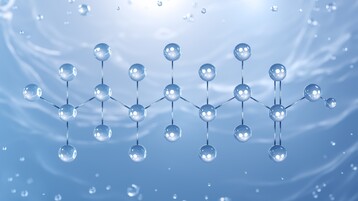PFAS Experts Discuss "Forever Chemicals" At Nantucket Forum
JohnCarl McGrady •

The Nantucket Land and Water Council (NLWC) has tested over 350 wells across the island for PFAS, a large family of dangerous so-called “forever chemicals,” according to a presentation given by NLWC waterkeeper RJ Turcotte Thursday.
“It’s something important that we are hoping to give to the rest of the world to be able to just empower you to tell if your water supply is safe or not affordably,” Turcotte said.”It’s so simple, so easy, it’s very affordable, so really, we are hoping to use Nantucket to calibrate this and send it off to everyone else..”
Turcotte’s came as part of a panel discussion jointly hosted by the NLWC and the Nantucket PFAS Action Group moderated by Boston Globe journalist David Abel. The panel featured several PFAS experts, including an Environmental Protection Agency whistleblower.
The well testing program, a collaboration between the Nantucket PFAS Action Group, the Nantucket Land and Water Council (NLWC), the Natural Resources Defense Council, Westfield Residents Advocating for Themselves, UMASS Amherst, and the University of Notre Dame, is a cheaper, faster, more comprehensive method for PFAS testing that could help determine how widespread contamination is on Nantucket and allow those affected to better respond to the threat.
“This is an affordable way, for less than $50, just to tell if your water is healthy,” Turcotte said. “We just want to be able to empower you and everyone you know and love to know whether your water is safe or not.”
When it was first announced a little less than a year ago, the program had its sights set on testing 300 island wells for PFAS. They have well surpassed that goal.
Massachusetts only regulates six PFAS, and most commercial tests can only detect a few dozen, but the method NLWC uses can test for all of the more than 6,000,000 different varieties.
NLWC is still waiting on the results of many of the tests, which can take some time to complete, but is continuing the project in the meantime. When results come in, NLWC will work with homeowners to understand what the results mean and how they should respond. The project is the most comprehensive effort yet to track PFAS contamination across the island and may even expand to eventually test Town water as well.
“We want to build a website where you can go and record your results and you can just look and say, hey, what kind of filter do I need,” Turcotte said. “We wanted to build a website with these answers that are easily accessible for a layperson.”